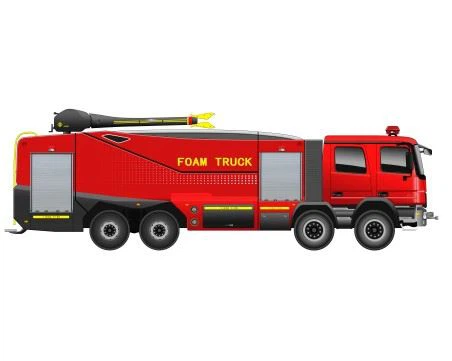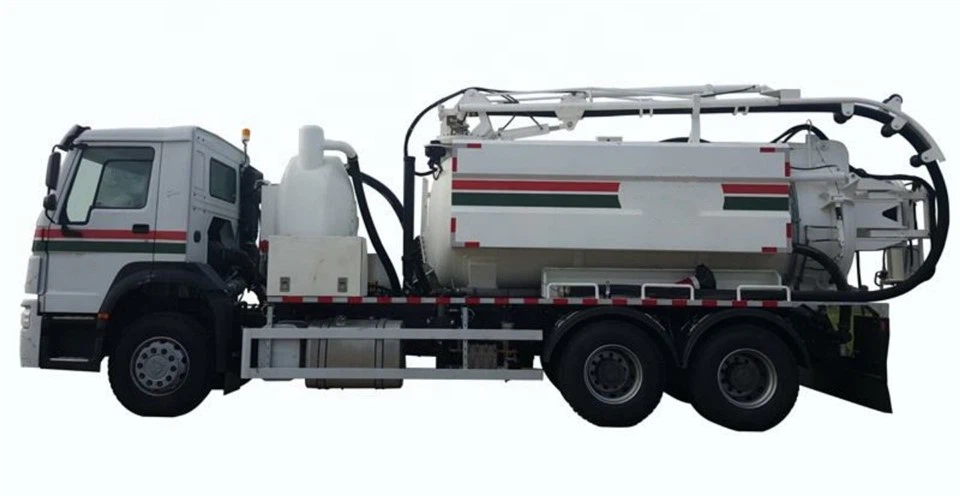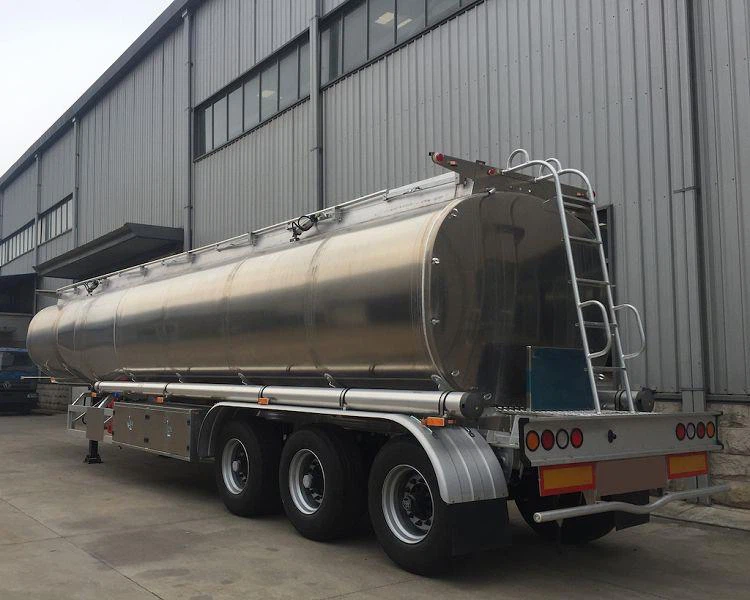Understanding Vactor Trailers: The Ultimate Guide

When it comes to effective waste removal and sewer maintenance, vactor trailers are pivotal tools in the fleet of modern industrial vehicles. These specialized trailers combine the portability of trailers with the functionality of vacuum systems, making them indispensable for municipalities, construction companies, and environmental services. In this article, we will delve deep into the world of vactor trailers, exploring their function, types, benefits, maintenance, and much more.
What is a Vactor Trailer?
A vactor trailer is a specialized piece of equipment designed for suction and high-pressure water cleaning. It is commonly used for cleaning sewers, drain lines, catch basins, and other industrial applications. The term “Vactor” originates from a leading brand in vacuum and jetting equipment; however, it has become synonymous with vacuum trailers. These trailers are ideal for both urban and rural applications due to their mobility and efficiency.
How does a Vactor Trailer Work?
At its core, a vactor trailer operates using two fundamental mechanisms: suction and jetting. The trailer is equipped with a vacuum system that creates negative pressure, which allows it to suck up debris, sludge, and other materials. Additionally, high-pressure water jets are used to dislodge stubborn blockages, making the cleaning process more efficient.
Components of a Vactor Trailer
| Component | Description |
|---|---|
| Vacuum Pump | Creates suction to draw in solids and liquids. |
| Water Tank | Stores water for jetting and cleaning. |
| Hoses | Flexible tubes used for suction and jetting. |
| Filter System | Removes impurities from the suctioned materials. |
| Control Panel | Allows operators to control pump and jetting operations. |
Types of Vactor Trailers
There are several types of vactor trailers available, each designed for specific applications. Understanding the different types can help you choose the right one for your needs.
1. Combination Trailers
Combination trailers incorporate both vacuum and jetting systems in one unit. They are versatile and can handle a variety of tasks, from cleaning sewer lines to performing maintenance on catch basins.
2. Vacuum Trailers
Vacuum trailers are primarily designed for suction operations. They excel in removing liquids and solids from tanks, sumps, and various containment systems.
3. Jetting Trailers
Jetting trailers focus mainly on high-pressure water jetting applications. They are ideal for breaking up blockages in sewers and drainlines, especially in environments where debris is compacted.
Benefits of Using Vactor Trailers
Vactor trailers offer a range of benefits that make them essential for waste management and maintenance operations.
1. Enhanced Efficiency
Using a vactor trailer can significantly speed up cleaning operations. The combination of suction and jetting reduces the time required to clear blockages compared to manual methods.
2. Cost-Effectiveness
Investing in a vactor trailer can reduce operational costs over time. Fewer man-hours are needed for cleaning, and the efficiency gained often means fewer trips to disposal sites.
3. Environmental Protection
Vactor trailers help prevent environmental pollution by effectively removing waste and preventing backflows. They ensure that contaminants do not enter water systems.
4. Versatility
These trailers can be used for various applications beyond sewage cleanup, such as industrial cleaning, debris removal, and even environmental recovery tasks.
Practical Applications of Vactor Trailers
Vactor trailers find utility in a variety of industries and scenarios. Here are a few practical applications.
1. Municipal Waste Management

Local governments utilize vactor trailers for routine cleaning of stormwater systems and sewer networks, ensuring the infrastructure remains functional and free of blockages.
2. Construction Sites
Construction companies often require waste removal services to keep sites clean and safe. Vactor trailers can help in removing water and debris quickly.
3. Industrial Cleaning
Manufacturing facilities regularly use vactor trailers for cleaning up spills, sludge, and waste materials from various industrial processes.
4. Environmental Services
Vactor trailers are employed during environmental cleanup operations, where hazardous materials need to be safely removed from areas without contaminating soil or groundwater.
Choosing the Right Vactor Trailer

When selecting a vactor trailer, there are several factors to consider to ensure you make the right choice for your needs.
1. Size and Capacity
Evaluate the capacity you require based on the type of materials you’ll be collecting. Vactor trailers come in different tank sizes, typically ranging from 500 to 2000 gallons.
2. Power and Suction Performance
Consider the power of the vacuum pump and its suction performance, which will determine how effectively it can remove debris and liquids.
3. Jetting Pressure
For those needing jetting capabilities, check the pressure ratings. High-pressure systems can tackle more stubborn blockages efficiently.
4. Budget and Operating Costs
Besides the purchase price, factor in maintenance and operating costs. Choose a model that fits your budget without compromising efficiency.
Maintenance of Vactor Trailers
Regular maintenance is crucial to ensure the durability and efficient operation of vactor trailers. Here are some key maintenance tips.
1. Daily Inspections
Before each use, perform a brief inspection of the trailer, including the vacuum pump, hoses, and tanks to identify any potential issues.
2. Regular Cleaning
After every job, clean the vacuum tank and filter system. This prevents buildup that could affect the trailer’s performance over time.
3. Check Fluid Levels
Regularly monitor the hydraulic fluid, oil, and water levels. Maintaining appropriate levels is essential for optimal operation and prevents overheating.
4. Professional Servicing
Schedule periodic professional servicing to address mechanical issues and to ensure that all parts are functioning correctly and efficiently.

Vactor Trailer Safety Tips
Operating vactor trailers can pose risks if proper safety measures are not followed. Here are some tips to maintain safety on-site.
1. Wear Safety Gear
Always wear the necessary safety gear including gloves, hard hats, and eye protection, especially if working in potentially hazardous environments.
2. Follow Manufacturer Guidelines
Adhere to all operating instructions and guidelines provided by the manufacturer to ensure safe and effective use of the trailer.
3. Properly Train Operators
Ensure all operators receive adequate training on how to operate vactor trailers safely and understand the equipment’s functioning.
4. Maintain Safe Distances
During operation, keep bystanders and unauthorized personnel at a safe distance, especially when discharging hazardous materials.
FAQs About Vactor Trailers
1. What is the typical lifespan of a vactor trailer?
The lifespan of a vactor trailer can vary based on usage and maintenance, but they can last anywhere from 10 to 15 years with proper care.
2. Can vactor trailers collect hazardous materials?
Yes, vactor trailers can be equipped to collect hazardous materials, but it requires specific configurations and compliance with local regulations.
3. How often should I service my vactor trailer?
It’s recommended to perform professional servicing at least once a year, or more frequently depending on usage and job conditions.
4. Are vactor trailers easy to transport?
Yes, vactor trailers are designed for mobility and can be easily transported using compatible towing vehicles.
5. What is the average cost of a vactor trailer?
The price of vactor trailers can vary widely, generally ranging from $50,000 to $200,000 depending on size, capacity, and functionalities.
6. Do vactor trailers require special licensing to operate?
Yes, operators typically need a commercial driver’s license (CDL) depending on the weight of the trailer and local regulations.
